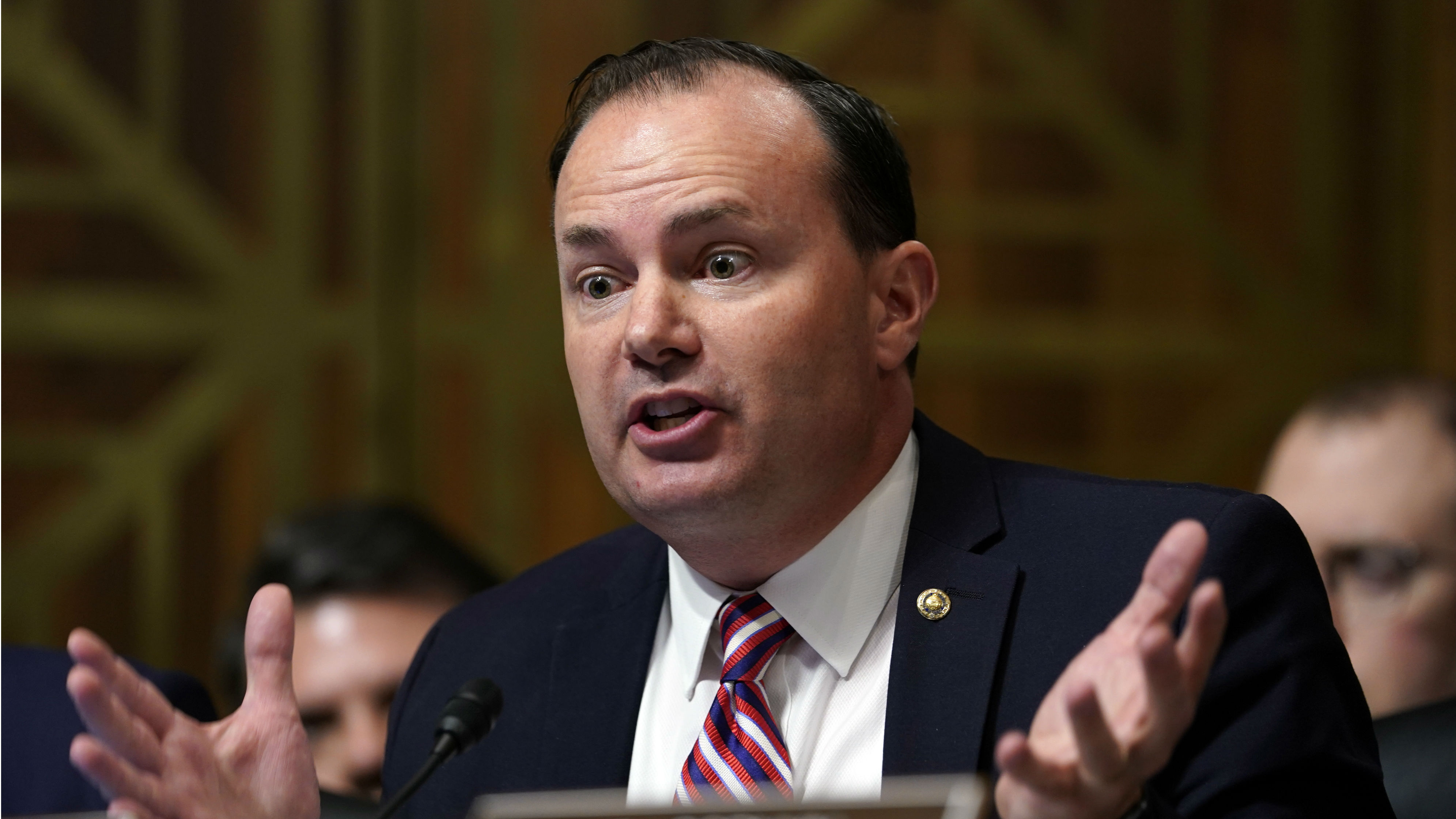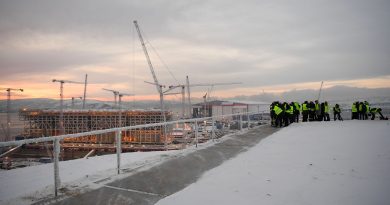Alaska’s Murkowski aims to revive public lands bill in U.S. Senate

One of Alaska Senator Lisa Murkowski’s first priorities in the Congress that begins Thursday is to pass a 680-page public lands bill. It’s a compendium of wants and needs, from Republicans and Democrats. Murkowski came within a hair’s breadth of passing it late last month but she was thwarted by a single senator.
It’s a reminder of how hard it is to get a bill through the U.S. Senate, and how hard it can be to make adjustments to public lands, even if 99 senators are willing to see it pass.
“Mr. President, I would ask unanimous consent on behalf of Chairman Hatch that the Senate proceed to the immediate consideration of the lands package bill,” Murkowski said, pushing her just before the Christmas break. “Unanimous consent” is how most bills get to the floor, but it has one drawback: the unanimous part.
The public lands bill has become a December tradition. The heart of it is always a collection of hyper-local issues. One section of it might expand the borders of a refuge to include a donated ranch. Or, Murkowski said, it may deed land to a school.
“It’s pretty parochial,” she said. “These don’t come to the floor for debate and passage … . It might not be a perfect process but we bundle them up at the end of the year.”
Utah senator’s objection
As chair of the Senate Energy and Natural Resources Committee, Murkowski is largely responsible for compiling the bill and negotiating its passage. A major Alaska item in the latest one would have given Native veterans of the Vietnam War era another opportunity to select land for a personal allotment.
The bill also had several nationwide measures, including a really big one: it would make the Land and Water Conservation Fund permanent. The fund, which expired in October, allowed the federal government to preserve land and improve parks and recreation areas, using revenue from offshore drilling. It also sent piles of money to the states. It’s been popular on the left and the right for decades. But not everyone likes it.

“I object,” said Sen. Mike Lee, R-Utah, as he blocked Murkowski’s bill. And oh boy, did he object.
Lee said the Land and Water Conservation Fund has been used to acquire more federal land, so he doesn’t like it.
“Coming from a state where two-thirds of the land is owned by the federal government,” Lee said, “where we can’t do anything without leave from the federal government, this hurts.”
Lee said he’d let the bill proceed if he could shield Utah from a different law – the Antiquities Act, which allows presidents to protect land by declaring it a monument. Lee demanded senators add two words to the bill.
“Two words,” he said on the floor. “The words ‘or Utah’”
Utah has a lot at stake with the Antiquities Act. It had two monuments that were more than a million acres each before President Trump decided to shrink them. But bill supporters say the exemption Lee wants is too controversial to be included in the bill. So Lee blocked the entire thing.
Senators on both sides lamented Lee’s tenacity. Republican Sen. Cory Gardner, R-Colo., is normally cheery and mild-mannered, but he was furious about losing some of the bill’s elements, like a section that would improve firefighting technology.
“That was in this bill!” Gardner shouted. “To protect our communities from wildfire! To protect our firefighters from injury – in this bill! The other thing in this bill: Minturn, Colorado. ”
That’s a town of 1,000 near Vail. Gardner explained that it needs to make repairs to its water supply system.
“They’ve been trying to fix it and they can’t! Because it’s in a wilderness area,” Gardner said. “So we have to have an act of Congress to allow a city to fix their water system! Rejected tonight because we weren’t allowed a vote!”
Finding a work-around
Murkowski said the episode was more than frustrating.
“One person just stalled the whole thing out,” she said afterward.
And that’s the U.S. Senate for you: You can’t move a bill quickly unless everyone agrees. And Murkowski accepts that.
“Unanimous consent requires a level of cooperation, which I think is good for the body,” she said. “But it also does allow for processes and good work to be irrevocably stalled.”
Murkowski said leaders on both sides of the aisle have agreed to take up the bill again this month, this time under Rule 14, a process Lee can’t block, not on his own. Because that’s also the Senate for you: For just about every rule, there’s another rule that provides a work-around.
Related stories from around the North:
Canada: Inuit and Ottawa reach agreement in principle on marine conservation area in Northwest Passage, Radio Canada International
Finland: Finland’s national parks popular despite poor maintenance, Yle News
Russia: Russia adds small Arctic island to large national park, The Independent Barents Observer
Sweden: Sweden to support forest industry following historic summer wildfires, Radio Sweden
United States: Why Alaska’s US senators oppose a bipartisan criminal justice reform bill, Alaska Public Media



